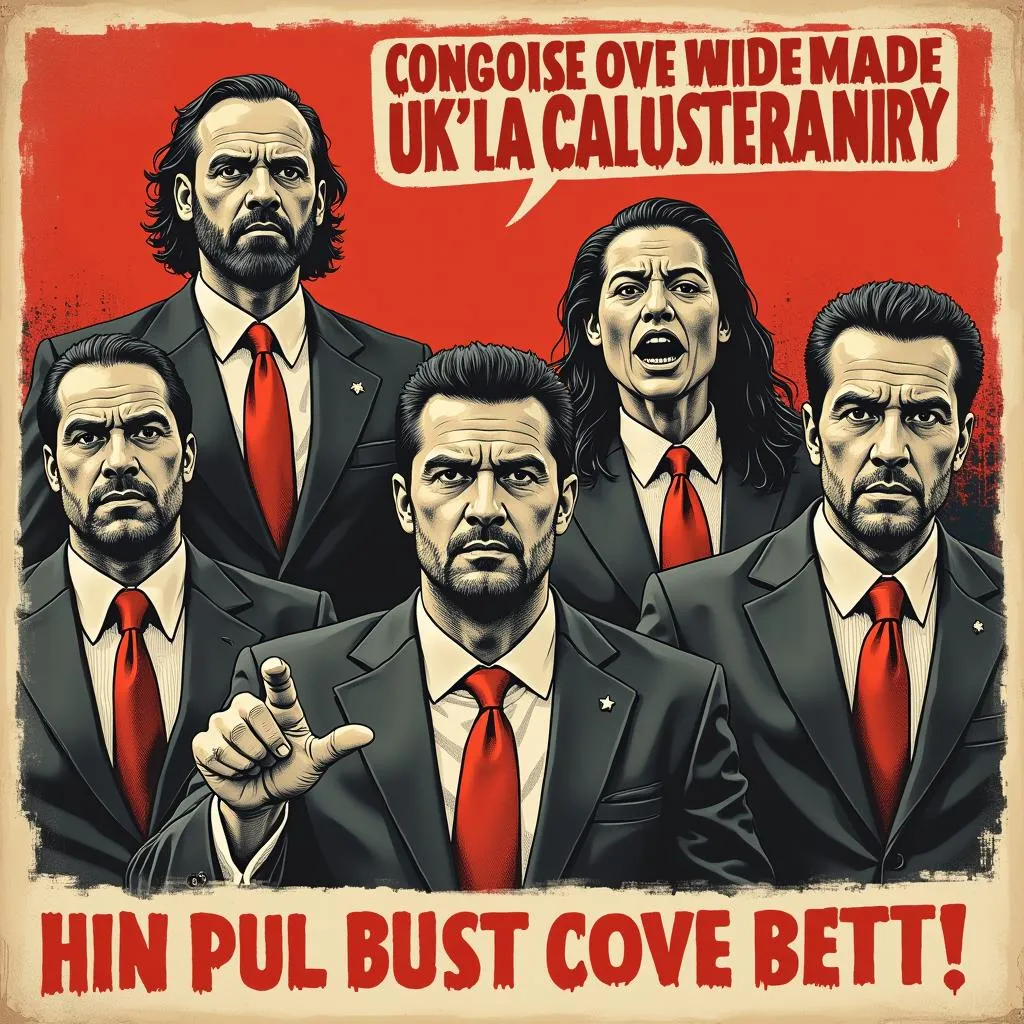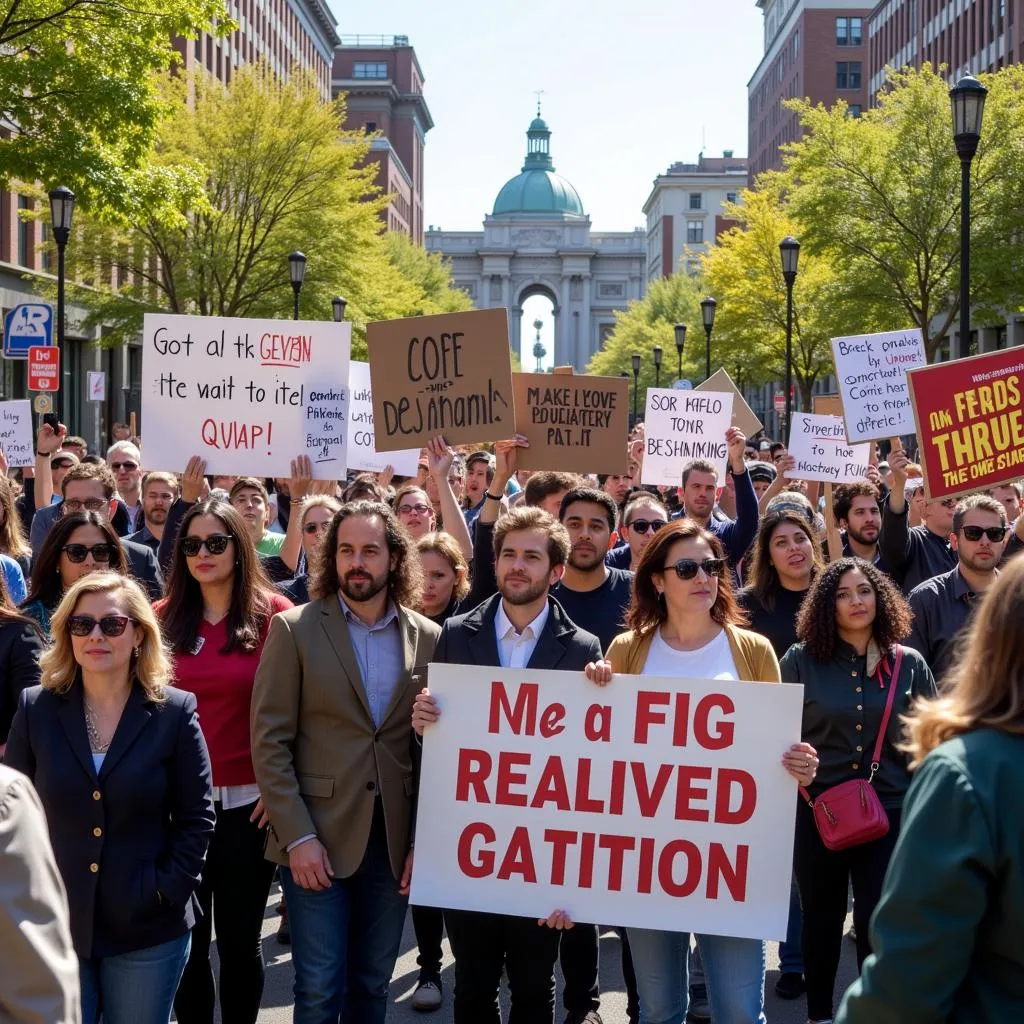The Formation Of A Persecuting Society is a complex and often gradual process, where intolerance, fear, and prejudice coalesce to create an environment ripe for discrimination and violence. While the specific factors may vary depending on the historical, social, and political context, understanding the common threads that weave together such a dangerous tapestry is crucial for prevention and intervention.
Seeds of Discord: Planting the Seeds of Persecution
One of the first steps towards a persecuting society often involves the identification and demonization of a particular group. This could be based on factors like religion, ethnicity, sexual orientation, political affiliation, or even something as arbitrary as social class or occupation. This process of “othering” creates a false dichotomy, dividing society into “us” and “them,” where the “other” is portrayed as inherently dangerous, inferior, or threatening to the established order.
 Propaganda Poster Demonizing Minority Group
Propaganda Poster Demonizing Minority Group
Propaganda, often disseminated through various media channels, plays a significant role in reinforcing these negative stereotypes and spreading misinformation about the targeted group. By associating them with negative traits, behaviors, or ideologies, propagandists aim to manipulate public opinion and foster a climate of fear and resentment.
The Slippery Slope: From Prejudice to Persecution
It is important to recognize that the journey from prejudice to active persecution is rarely a sudden leap but rather a gradual erosion of human rights and freedoms. Initially, prejudice might manifest as subtle forms of discrimination, such as social exclusion or economic marginalization. However, as these prejudices become more deeply entrenched, they can escalate into more overt and harmful actions.
 Group of People Protesting Against Discrimination
Group of People Protesting Against Discrimination
The absence of strong legal frameworks that protect the rights of all individuals and groups can create a fertile ground for persecution. When laws fail to uphold the principles of equality and justice, they can be easily manipulated or ignored, leaving vulnerable populations exposed to exploitation and abuse.
The Role of Leadership: Fanning the Flames of Intolerance
Leaders, both political and social, wield immense influence over public opinion and behavior. When leaders exploit existing prejudices or actively promote discriminatory policies, they legitimize and normalize hatred, emboldening individuals to act on their biases without fear of consequence.
Furthermore, a lack of accountability for hate speech and hate crimes creates a culture of impunity, where perpetrators feel emboldened to commit further acts of violence and intimidation. This cycle of violence and silence can quickly spiral out of control, transforming a society that once valued tolerance and diversity into one ruled by fear and oppression.
Breaking the Cycle: Building a More Just and Equitable World
Understanding the factors that contribute to the formation of a persecuting society is essential for developing effective strategies for prevention and intervention. Education plays a vital role in challenging prejudices, promoting empathy, and fostering a culture of respect for human rights.
 Students Participating in Diversity Workshop
Students Participating in Diversity Workshop
By equipping individuals with the knowledge and skills to recognize and challenge discrimination, we can empower them to become agents of positive change within their own communities. Building a society where everyone feels safe, respected, and valued requires a collective effort to dismantle systems of oppression and create a world where diversity is celebrated, not feared.
Conclusion
The formation of a persecuting society is a stark reminder of the fragility of human rights and the constant need for vigilance in safeguarding them. By understanding the processes that can lead to such dangerous environments, we can work towards creating a world where diversity is celebrated and every individual is treated with dignity and respect.